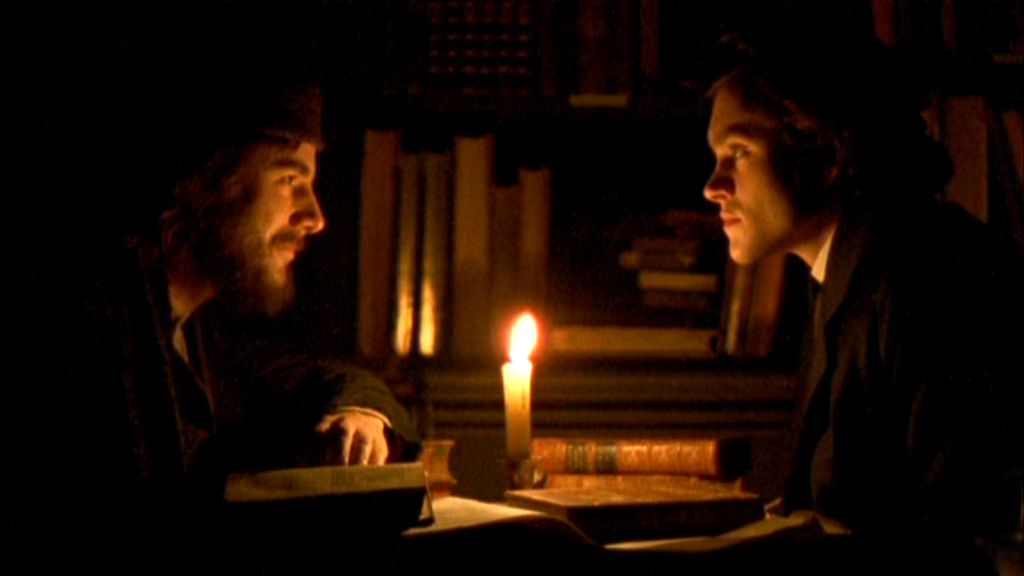There’s not much in Pirkei Avot about clothing. In fact, clothes don’t get a mention at all—unless you count crowns, that is. But we do learn about being clothed. In the first baraita of the sixth perek, immediately after the prolegomenon, we learn the following in the name of Rabbi Meir:
כָּל הָעוֹסֵק
בַּתּוֹרָה לִשְׁמָהּ זוֹכֶה לִדְבָרִים הַרְבֵּה, וְלֹא עוֹד, אֶלָּא שֶׁכָּל
הָעוֹלָם כֻּלּוֹ כְּדַאי הוּא לוֹ. נִקְרָא רֵֽעַ, אָהוּב, אוֹהֵב אֶת הַמָּקוֹם,
אוֹהֵב אֶת הַבְּרִיּוֹת, מְשַׂמֵּֽחַ אֶת הַמָּקוֹם, מְשַׂמֵּֽחַ אֶת
הַבְּרִיּוֹת, וּמַלְבַּשְׁתּוֹ עֲנָוָה וְיִרְאָה
Whoever studies Torah for Torah's sake merits many things; not only that,
but [the creation of] the entire world is worthwhile for him alone. He is
called a friend, beloved, a lover of God, a lover of humanity, a person who makes God
happy, someone who makes humans happy. And the Torah enclothes him with
humility and awe …
This is obviously a
metaphor, since any talmid chacham who walks the streets clad in nothing
but his humility and awe would soon attract quite the wrong sort of
attention—but what is the significance of this metaphor?
Rabbenu Yonah surprisingly states that being wrapped in the garb of humility and awe is comparable to being immersed in water—which itself is a metaphor for water. Midrash Shmuel sticks closer to the concept of clothing when he comments that, just as chochmah, wisdom, is at the head of a person, humility is, as it were, his pair of sandals since, like humility itself, there is nothing lower. But what does chochmah, rather than yirah, fear, have to do with this teaching? Explains Midrash Shmuel, reshit chochmah yirat Hashem (Tehillim 111:10): the first step towards wisdom is fear itself, fear of God.
Rabbi Abraham J. Twerski (Visions
of the Fathers) picks up the metaphor and runs with it: humility is a
garment which must be removed when necessary, since there are times when a person
must show himself to be firm and decisive. Misguided humility can be
destructive, and a true Torah scholar knows when to be humble and when not to
be.
I can offer another
plausible explanation. We recognise many people by their uniforms: the police,
fire fighters, nurses, for example. On this basis we can identify them easily
and feel confident that they have the skills and training that have earned them
the right to wear their uniforms. So too, if we see a person who is, as it
were, clothed in humility and deep respect, we are entitled to assume that the
person who “wears” these characteristics actually possesses them. If not, then
the clothes are a deceit, a false description of the person beneath them.
Is there any support for
this? Possibly. The Chasid Yavetz utilises much the same idea, pointing out
that a true tzaddik does not alternate between righteousness and
unrighteousness but “wears” his finer qualities all the time (we might add,
“like a uniform”). The garments of humility and awe are not undergarments, says
the Chasid Yavetz: they are the visible over-garments that advertise a person’s
true nature and qualities.
For comments and discussion of this post on Facebook, click here.





